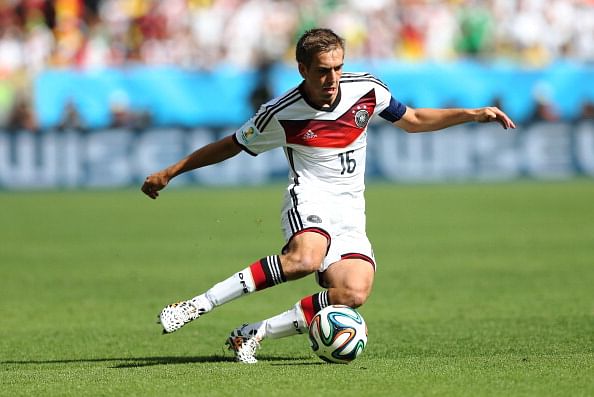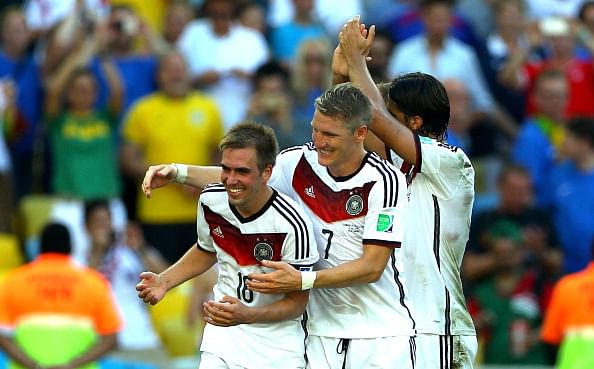Is Lahm the solution to Germany’s defensive frailties?

As the German players came through the mixed zone of the Maracana on Friday, there was a renewed assurance to their demeanour. This was no longer the group so startled by Algeria in the second round, or the side that looked so much more fragile than the force of the past few years. It was a squad emboldened by what was an impressively controlled 1-0 win over France. There was a real sense of the team showing their true selves, finally coming into their own.
Only one question dented the mood, and it partially stemmed from the single problem the Germans endured during the game.
What was the reason for the greater defensive solidity? Was it Jogi Löw finally removing Philipp Lahm from defensive midfield and restoring him to right-back? Somewhat understandably, all of the players talked generally about the overall strength of the team, with no one wanting to getting into any debates about the manager’s decisions.
Löw himself completely evaded the Lahm issue when directly asked after the French win.
“Both teams focused on the defensive side,” the manager said. “Scoring opportunities were not there. Both teams had good tactical solutions defensively.”
The deepest question around Germany is whether that will be true for the rest of the tournament; whether they have finally found a solution to their own longer-term defensive issues.

It was that single problem in the quarter-final. As utterly composed as Germany were, and as much as Lahm’s positional switch made them look much less ragged, there were still conspicuous moments of blind panic any time France tried a simple ball over the top. One such effort almost let Karim Benzema in long before Mats Hummels’s goal, another forced a brilliant save from Manuel Neuer.
It reminded Löw and everyone else of the side’s big flaw. The movement of Lahm only made it a little less obvious. If every single team in the semi-finals has a major weakness, this is Germany’s.
The question is which one of those flaws will be caught first, but the Germans should perhaps have been caught out earlier in this World Cup. It is, in short, an utter fluke that they have only conceded three goals in five games.
The opening match against the Portuguese could have seen that doubled. Before Thomas Müller’s penalty completely rearranged the pattern of the game, Portugal were roaring through Germany at will. There were at least three early chances that should have been scored.
Ghana eventually took two of those opportunities in the next game, and the US were consistently capable of putting the Germans on the back foot. Even that 1-0 win saw one desperately panicked block from Lahm.
The warnings have been there for far longer. It was a porousness at the back that cost Germany against Italy in the Euro 2012 semi-final defeat, and they had a worse defensive record than any other European group winner in qualifying for this World Cup. The persistence of the problem has raised the deepest doubts about Löw’s managerial ability. Although he seems capable of putting together a genuinely sensational attack, it is often as if the defensive side is something of a blind spot.
For Löw’s part, there was progress against France, and solutions also presented themselves further up the pitch. There was the very space vacated by Lahm, with Bastien Schweinsteiger yesterday enthusing about the work done at centre-midfield, as he and Sami Khedira started there together for the first time in this tournament. That played a major part in the control Germany displayed, as they almost replicated Spain in finding security out of just keeping the ball. Löw’s side are only marginally behind Argentina in the possession stats out of the countries left.
“I think things worked well between Sami Khedira and myself,” Schweinsteiger said. “We didn’t leave any space for the opposition.”
The added positive for Germany in this game is that Brazil don’t seem to have the pace on the break to exploit any space that is left. In that regard, Neymar’s injury is even more important. He is one of the few Brazilian attackers with the fleetness that Germany are so susceptible to.
The hosts may have to find another way through.

 For all latest news, follow The Daily Star's Google News channel.
For all latest news, follow The Daily Star's Google News channel. 



Comments